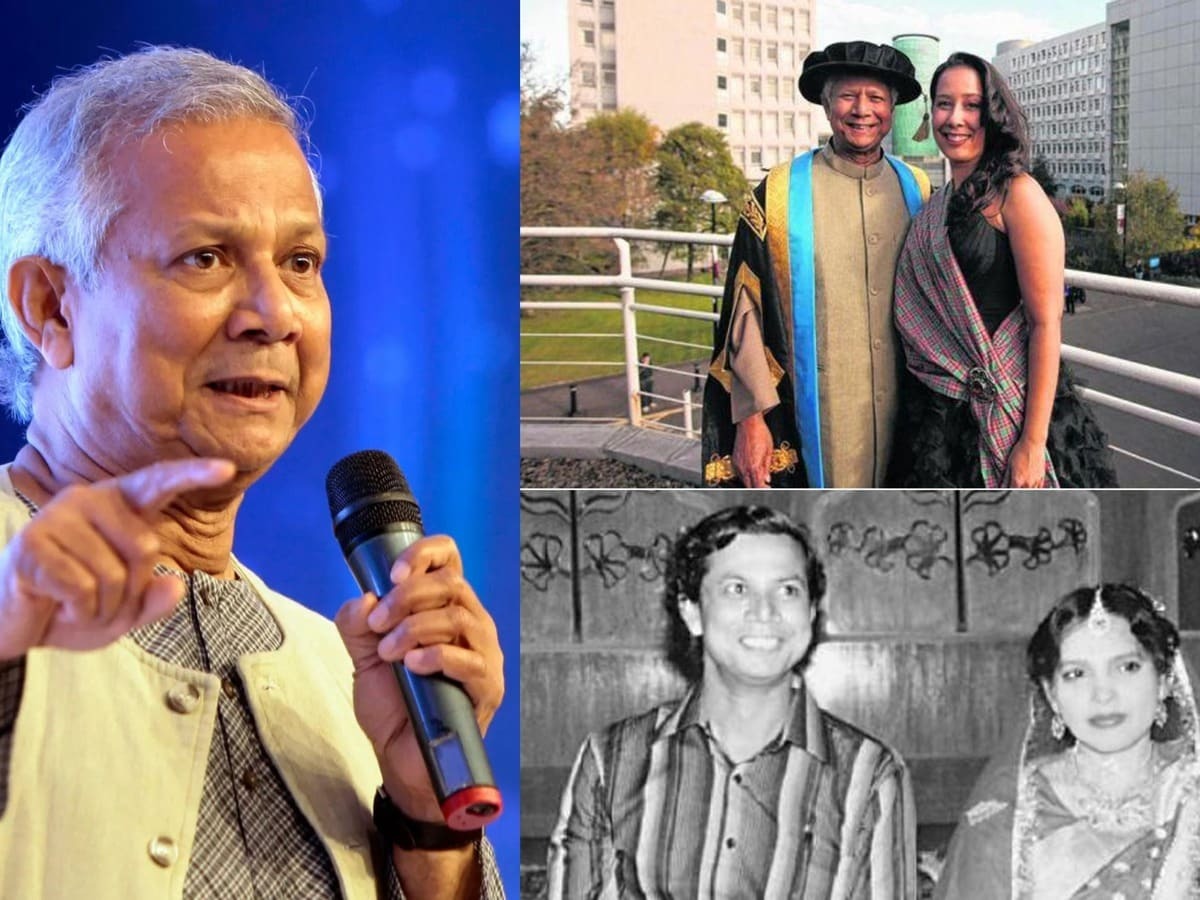The relationship between India and Bangladesh has always been linked to a deep cultural and historical tradition based on “Beti-Roti”. This relationship not only symbolizes exchanges between the neighboring countries, but also reflects the common heritage and civilization of both the countries. However, in recent times, the anti-India stance of the head of the interim government of Bangladesh and Nobel laureate Mohammad Yunus has worked to weaken this strong relationship.
Mohammad Yunus: India’s ‘son-in-law’
Mohammad Yunus’ personal connection to India is through his second wife Afrozi Yunus. Afroji was born in Raniganj Bazaar in Bardhaman district of West Bengal. Younes and Afrozi first met at Manchester University, where Afrozi was doing research in physics. Younes married Afrozi after the end of his first marriage to Vera Forstenko. After marriage, Afrozi started working in a university in Bangladesh. Younes also has a daughter, Monica Younes, from his first wife.
Indifference towards Hindu minorities
The incidents of atrocities on Hindu minorities are continuously increasing in Bangladesh. Many cases of attacks on temples, land grabbing, and social oppression have come to light. Mohammad Yunus’s silence on these incidents has raised questions. Being a Nobel laureate, he was expected to not only raise his voice on these issues but also make efforts to stop them. Instead, he has ignored these incidents, raising doubts about his impartiality.
Love for Indian culture and food
Mohammad Yunus has a special love for Indian culture and especially Bengali food. After receiving the Nobel Prize, he visited India and accepted the hospitality here with an open heart. Yunus is very fond of Shutaki fish and other Bengali dishes. According to his brother-in-law Asfaq Hussain, Yunus used to visit his in-laws’ house every year and enjoy the delicious food there. His in-laws in Bardhaman still talk about him with pride.
 look news india
look news india
